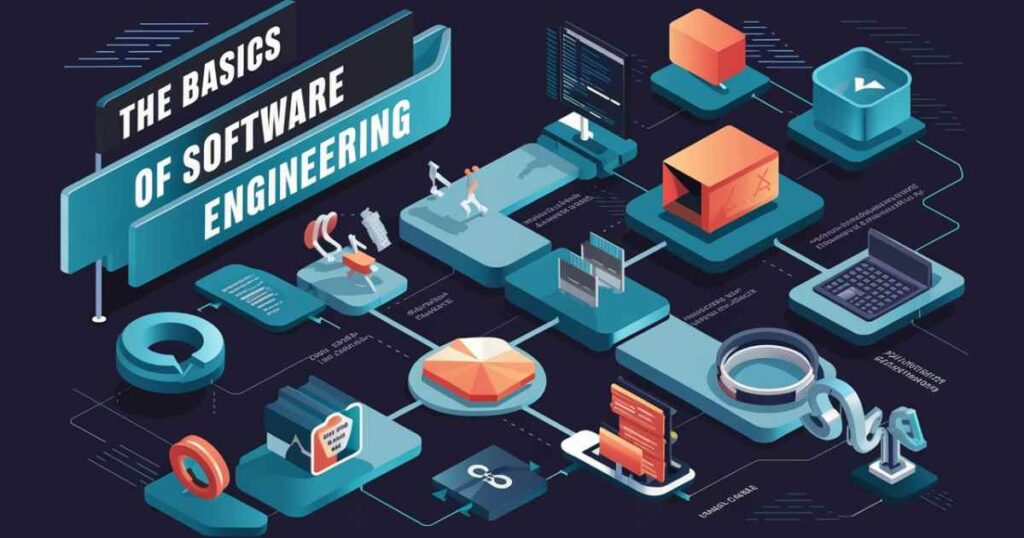Software engineering is the art and science of building complex digital systems. It involves designing, coding, testing, and maintaining software that powers our modern world. From smartphone apps to global networks, software engineers create solutions that shape our daily lives.
Ever wondered what it’s like to build the future with lines of code? Software engineering offers a thrilling journey into the heart of technology. It’s a field where you can craft digital experiences, solve real-world problems, and push the boundaries of innovation. But it’s not all smooth sailing – the path of a software engineer is paved with both challenges.
The truth is, it can be challenging, but it’s also incredibly fulfilling. Learning to code, understanding complex systems, and keeping up with rapid technological changes can be daunting. Yet, for those who love problem-solving and have a passion for technology, these challenges become exciting opportunities for growth and creativity.
The Basics of Software Engineering

Software engineering is like building a digital skyscraper with lines of code. It’s a field that blends creativity with technical prowess, where engineers craft solutions to real-world problems using computer languages. At its core, software engineering involves designing, developing, and maintaining complex systems that power everything from your smartphone apps to global financial networks.
The journey of a software engineer begins with mastering the fundamentals of coding as a foundation. It’s not just about writing lines of code; it’s about understanding the architecture of software systems, learning best practices, and grasping the software development process. As you dive deeper, you’ll discover that software engineering is a dynamic field, constantly evolving with new technologies and methodologies.
Understanding Programming Languages
Learning programming languages is akin to picking up new dialects in a foreign country. Each language has its own syntax, quirks, and strengths. Popular languages like Python, Java, and JavaScript serve as the building blocks for creating diverse applications. As you explore these languages, you’ll find that some are better suited for web development, while others excel in data analysis or mobile app creation.
The Role of Problem-Solving Skills
Problem-solving in programming is the bread and butter of software engineering. It’s about breaking down complex issues into manageable chunks and crafting elegant solutions. This skill goes beyond coding; it’s about understanding user needs, anticipating potential issues, and designing systems that are both efficient and scalable. The impact of problem-solving skills extends far beyond the computer screen, influencing how engineers approach challenges in all aspects of their work.
Read More: What Is Testing In Zillexit Software?
Challenges in Software Engineering

Software engineering challenges are as diverse as they are numerous. One of the biggest hurdles is keeping pace with technology changes. What’s cutting-edge today might be obsolete tomorrow, requiring engineers to be lifelong learners. This constant evolution can be both exhilarating and exhausting, pushing professionals to continuously update their skills and knowledge.
Another significant challenge lies in debugging and testing software. It’s not uncommon for engineers to spend hours hunting down a single elusive bug. This process requires patience, attention to detail, and often, creative thinking. Moreover, as systems grow more complex, ensuring their reliability and security becomes increasingly challenging, demanding rigorous testing protocols and a keen eye for potential vulnerabilities.
The Learning Curve
The learning curve in programming can be steep, but it’s also incredibly rewarding. When you first start, even simple tasks can seem daunting. You might spend hours trying to center a div in CSS or debugging a simple loop. But as you progress, you’ll find that concepts start to click, and problems that once took days to solve now take minutes.
Continuous learning in software is not just a necessity; it’s a way of life. The tech industry moves at breakneck speed, with new frameworks, languages, and methodologies emerging constantly. Embracing this perpetual learning journey is key to thriving in the field. It’s about staying curious, experimenting with new technologies, and never being afraid to ask questions or seek help from the vibrant tech community.
The Importance of Soft Skills
While technical prowess is crucial, the importance of communication skills in software engineering cannot be overstated. Engineers often work in teams, collaborating with designers, product managers, and other stakeholders. Being able to explain complex technical concepts to non-technical team members, write clear documentation, and effectively communicate ideas can make or break a project.
Empathy in software teams plays a vital role in creating successful products. Understanding user needs, collaborating effectively with team members, and being able to see problems from different perspectives are all essential soft skills. These abilities not only make you a better engineer but also a more valuable team member and leader.
Critical Thinking and Creativity

Critical thinking in engineering goes hand in hand with creative problem-solving. It’s about looking at problems from multiple angles, questioning assumptions, and coming up with innovative solutions. This blend of analytical and creative thinking is what sets great software engineers apart.
The role of creativity in software extends beyond problem-solving. It’s about designing intuitive user interfaces, architecting elegant system designs, and finding novel ways to optimize performance. Some of the most groundbreaking technologies we use today are the result of engineers thinking outside the box and daring to challenge the status quo.
Overcoming Obstacles
Overcoming obstacles in tech is a daily part of a software engineer’s life. Whether it’s a stubborn bug, a tight deadline, or a complex system integration, challenges are constant. The key is to approach these hurdles with a positive mindset, viewing them as opportunities for growth rather than insurmountable barriers.
Patience and perseverance in coding are virtues that every successful engineer cultivates. Rome wasn’t built in a day, and neither are robust software systems. It’s important to remember that even the most experienced engineers face difficulties. The difference lies in how they approach these challenges – with determination, resourcefulness, and a willingness to learn from failures.
Finding Support and Mentorship
No engineer is an island. The tech community and support networks play a crucial role in professional growth. Online forums, local meetups, and professional associations offer opportunities to connect with peers, share knowledge, and stay updated on industry trends.
Mentorship in engineering can be a game-changer for many aspiring professionals. A good mentor can provide guidance, share experiences, and offer valuable insights that can accelerate your learning and career growth. Don’t hesitate to reach out to experienced professionals in your network or through mentorship programs. Remember, most people in the tech industry are happy to help others, as they’ve likely benefited from similar support in their own careers.
Celebrating Small Victories

In the challenging world of software engineering, it’s crucial to acknowledge and celebrate your progress. Each bug fixed, each feature implemented, and each concept mastered is a step forward in your journey. These small wins build confidence in coding skills and provide the motivation to tackle even bigger challenges.
Every expert was once a beginner. By recognizing your growth and achievements, no matter how small they may seem, you’re reinforcing your skills and building resilience. This positive reinforcement can be a powerful tool in overcoming the inevitable setbacks and frustrations that come with learning complex technologies.
Read More: What is Computer Linking Technology Crossword?
Frequently Asked Questions
What makes software engineering hard?
Software engineering is challenging because it requires constant learning and problem-solving. You need to understand complex systems, keep up with new technologies, and think creatively to solve tricky issues.
How much time does it take to become good at software engineering?
It usually takes 1-3 years of focused practice to become proficient in software engineering. However, learning never stops in this field, as technology keeps changing and improving.
Do you need to be good at math to excel in software engineering?
While basic math skills are helpful, being good at logical thinking is more important. Many software engineering tasks rely more on problem-solving abilities than advanced math.
Can someone without a tech background succeed in software engineering?
Many people without tech backgrounds have become successful software engineers. With dedication, hard work, and the right resources like online courses or coding bootcamps, anyone can learn.
Is software engineering harder than other engineering fields?
Software engineering is different, not necessarily harder. It focuses more on abstract problem-solving and rapid changes in technology, while other fields might deal more with physical systems.
Conclusion
In conclusion, software engineering is challenging but rewarding. It’s a field that demands constant learning, problem-solving, and creativity. While it can be tough at times, the satisfaction of building something that impacts people’s lives makes it worthwhile.
Whether you’re a tech enthusiast or a career changer, success in software engineering is possible with dedication and perseverance. If you’re passionate about technology and enjoy solving puzzles, software engineering could be your exciting new adventure.

